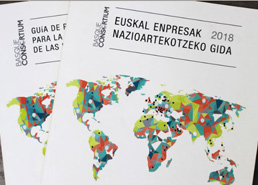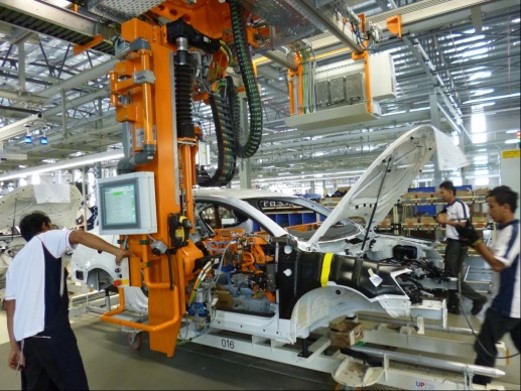Looks like the proactive steps taken by the International Trade Ministry, MITI in making a Malaysia a viable automotive hub comparable to Indonesia and Thailand has paid off handsomely. The strong government policy support focusing on higher-value automotive components, and a well-established local electrical and electronics industry is attracting big vehicle manufacturers to consider the country as their regional base.
According to Fitch Solutions Country Risks and Industry Research not to be mistaken with Fitch Ratings, Malaysia outperforms its Asian region and global peers in our Autos Production Risk/Reward Index (RRI) in a number of indicators that suggest the country is well positioned to transition into manufacturing high-tech automotive related products. It added that it local firms are given priority over international companies, we expect the progress of developing Malaysia’s automotive value chain to take a more gradual path.
The agency believes Malaysia is well positioned to move up the automotive value chain as a strong focus of the country’ s newly revised automotive policy puts more emphasis on high-tech automotive solutions. Objective of the latest iteration of Malaysia’s National Automotive Policy (NAP2020) is to make a significant a leap from the previous policy revision, to now focus on spearheading the digital transformation of the country’s automotive industry. Growing technological trends in the global automotive industry such as autonomous vehicle technology, big data analytics and artificial intelligence, among others, have been identified by the Malaysian government in shaping the next step in Malaysia’s automotive industry over the next decade. With autonomous vehicle technology becoming a more important trend in the global automotive industry, the necessity of analysing large data sets becomes ever more crucial, while progress in artificial intelligence technology will enable more efficient and ‘smart’ manufacturing processes in global automotive assembly operations.
Fitch therefore believe the step taken by the Malaysian government to prioritise more tech-oriented automotive activities will provide sufficient competition to its regional peers as a tech hub for the automotive industry’s shift towards digital transformation.
Under the newly revised autos policy, the Malaysian government aims to support existing companies through incentives and tax reductions for firms in the automotive industry to develop expertise in these emerging high-tech fields. Malaysia has a solid foundation in promoting this new high-tech vision of its automotive industry with the potential to elevate the country’s automotive industry in the value chain, the country performs particularly well under the Country Rewards pillar of our Autos Production Risk/Reward Index (RRI) which measures the relative attractiveness of a market for automakers to establish a production base, where a score of 100 is most attractive and 0 least attractive.
Specifically, Malaysia outperforms its Asian regional peers under all four indicators of the Country Rewards pillar of our RRI which is comprised of the following categories:
• Size of labour force: Measures the availability of a large pool of skilled labour which is crucial in more technical occupations for R&D purposes. Malaysia outperforms its Asian regional and global peers in this indicator with a score of 51.8 versus 46.8 and 50.0, respectively.
• Average Wages/ Labour Costs: Measures the labour costs of the countries that we cover with variables such as labour market flexibility and minimum wage legislation factored into a country’s score under this indicator. Malaysia outperforms its Asian regional and global peers with a score of 69.8 under this indicator versus a regional score of 62.1 and a global score of 50.0.
• Cost And Availability Of Utilities: A measure of a country’s power supply along with the associated costs of utilities crucial for modern, mechanised and large scale production activities. Malaysia achieves a score of 66.1 for this indicator versus 49.2 and 50.0 for the regional and global average scores respectively.
• Manufacturing Capability: Under this category, we measure a country’s capability of producing complex goods. Malaysia’s score of 75.0 outperforms both the regional and global scores of 68.0 and 50.0, respectively.
Malaysia’s globally competitive electrical and electronics sector also provides the country with a competitive advantage in developing a more high-tech automotive ecosystem, as evidenced by the country’s large exports in this field. In 2019, Malaysia’s largest exports were electrical machinery, equipment with an export value of USD82bn followed by mineral fuels including oil with an export value of USD34.5bn. Companies with a presence in Malaysia such as Western Digital, which provides automotive-related products such as digital storage solutions and products for autonomous vehicles, can leverage on the government support expressed by the fourth iteration of the autos policy. Intel, which shifted its microprocessor plant from Costa Rica to Malaysia in 2014, could also benefit in manufacturing high-tech automotive products in the country through government support.
However, it is not clear as to whether the Malaysian government will support foreign companies as the policy stipulates support for local firms as a priority. If local firms are given priority over international companies, the progress of developing Malaysia’s automotive value chain will take a more gradual path.



